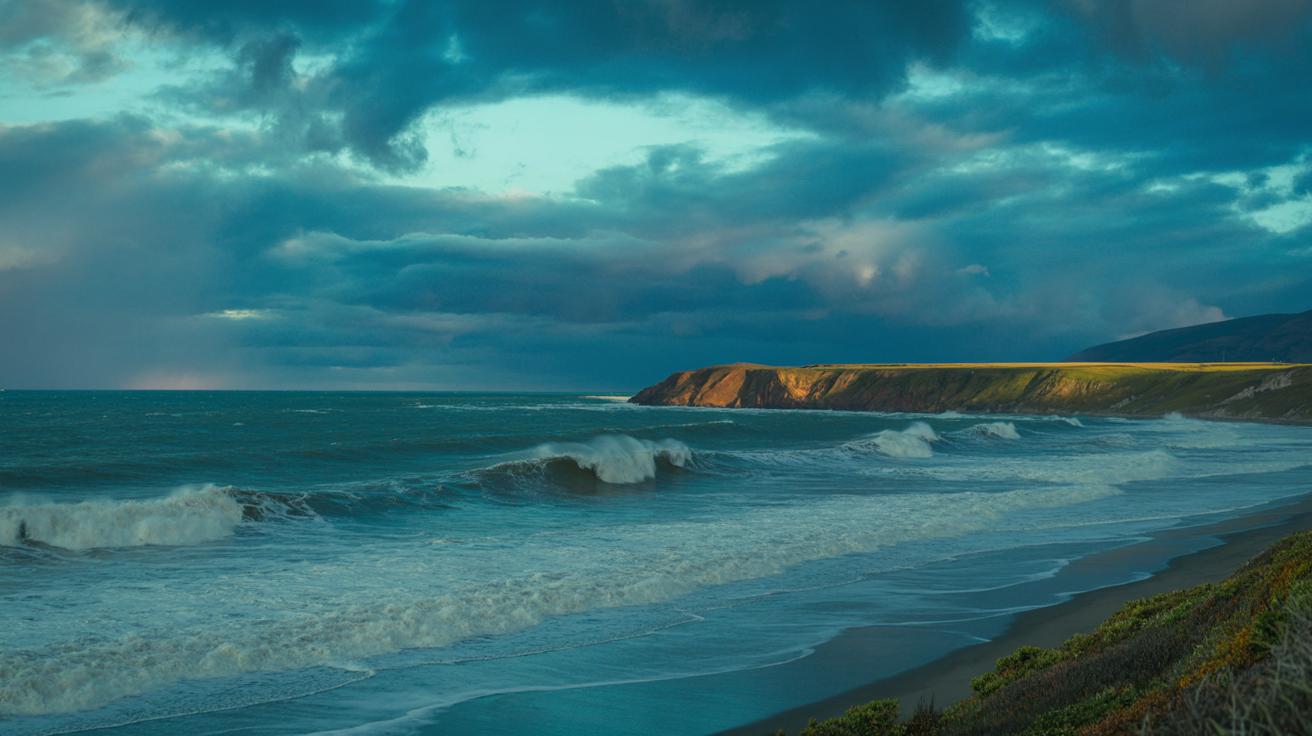What You Need to Know
- 🌡️ The Arctic is warming nearly four times faster than the rest of the globe, posing significant climate risks.
- 🌊 Disruptions to the Atlantic Meridional Overturning Circulation (AMOC) could lead to severe changes in global weather patterns.
- 🏝️ Coastal areas like Florida and the Carolinas face increased flooding risks due to potential changes in ocean currents.
- 💡 Researchers stress the importance of reducing greenhouse gas emissions to mitigate these climate threats.
- 🔧 Coastal communities are exploring adaptive measures, such as restoring wetlands and updating infrastructure, to combat rising sea levels.
In recent years, the Arctic has been warming at an alarming rate, raising concerns among scientists and coastal communities alike. This rapid increase in temperature is not just a local issue; it has far-reaching impacts on global weather patterns and ocean currents. Particularly worrisome is how these changes could disrupt the Atlantic Meridional Overturning Circulation (AMOC), a critical ocean current that plays a vital role in regulating climate and weather. If these currents are destabilized, the resulting effects could be catastrophic, leading to increased flooding risks along the East Coast of the United States.
Understanding Polar Warming
The Arctic is heating up at nearly four times the rate of the rest of the world, a phenomenon that has scientists deeply concerned. This accelerated warming is primarily due to the loss of sea ice, which has historically acted as a reflective barrier, sending sunlight back into space. Now, with more open water, the ocean absorbs more heat, which in turn melts more ice—a feedback loop that exacerbates the problem.
Experts like Céline Heuzé, a senior lecturer in climatology, emphasize that this warming trend could trigger a series of events with global repercussions. The influx of freshwater from melting ice into the ocean is particularly concerning. As it enters the North Atlantic, it can disrupt the natural flow of the AMOC, a vital system that helps distribute heat around the globe. A weakened or collapsed AMOC could spell disaster for weather patterns and sea levels, especially along the eastern seaboard of the United States.
The Threat to Ocean Currents
The AMOC is essentially a giant conveyor belt, moving warm water from the tropics to the North Atlantic, where it cools and sinks before returning south. This circulation is crucial for maintaining the mild climate in much of North America and Europe. However, the addition of freshwater from melting ice could dilute the salty North Atlantic waters, disrupting this delicate system.
Research indicates that if the AMOC weakens significantly, it could lead to drastic changes in climate and a rise in sea levels. This is particularly concerning for coastal areas such as Florida, Georgia, and the Carolinas, where even a slight increase in water levels can have devastating consequences. Local officials and urban planners are already starting to consider precautionary measures, from building flood barriers to updating infrastructure, to mitigate potential impacts.
Implications for the East Coast
The potential impact on the East Coast of the United States is particularly dire. Without the moderating influence of the AMOC, water could accumulate along coastal areas, raising sea levels and increasing the risk of flooding. This is not just a future concern; the National Oceanic and Atmospheric Administration (NOAA) has already observed rising sea levels along various U.S. shorelines.
The economic implications are equally troubling. Rising waters mean that even minor storms could have a much more significant impact, causing damage further inland and affecting more properties. Insurance costs could skyrocket, and some island communities might face existential threats as beaches erode and tourism dwindles. These potential outcomes underscore the urgent need for proactive measures to address and adapt to these changes.
Global Efforts to Mitigate Risks
While the situation is indeed alarming, there are steps that can be taken to mitigate the risks. Reducing greenhouse gas emissions is a critical first step. Cleaner energy sources, like solar and wind, play a vital role in reducing the amount of heat-trapping gases in the atmosphere. Urban planners and architects are also looking at innovative ways to reduce carbon footprints and increase energy efficiency in homes and businesses.
Coastal communities are also exploring ways to increase resilience. From restoring wetlands to implementing zoning changes, these actions can help absorb floodwaters and protect shorelines from erosion. However, the most effective strategy will likely be a combination of efforts, both on a local and global scale, aimed at reducing emissions and preparing communities for the changes that are already underway.
The potential collapse of the AMOC and the subsequent impact on coastal communities underscore the importance of understanding and addressing climate change. As scientists continue to study these phenomena, the data gathered will be crucial for shaping policies and strategies to mitigate these risks. What proactive steps should communities and governments take to prepare for these potential changes, and how can individuals contribute to these efforts?
Did you like it?4.4/5 (28)







8 comments
HarleyWanderlust0
Is there any hope left for reversing these changes, or are we just delaying the inevitable?
jane0
Great article! It’s high time we focus on alternative energy sources to save our planet.
Aiden
Why is this not in the headlines every day?! We need a global wake-up call!
annagalaxy
I’m really glad to see coastal communities taking action, but are these measures enough?
JosiahPrism
How soon could these changes start affecting us on the East Coast? This sounds urgent!
ColtonIllusionist
So, if the AMOC collapses, does that mean we’ll start seeing palm trees in Maine? 🌴😂
AuroraMystic
Thank you for sharing this vital information! It’s crucial we all stay informed about these risks.
adrian
Wow, this is terrifying! Are there any plans to relocate affected communities? 😟